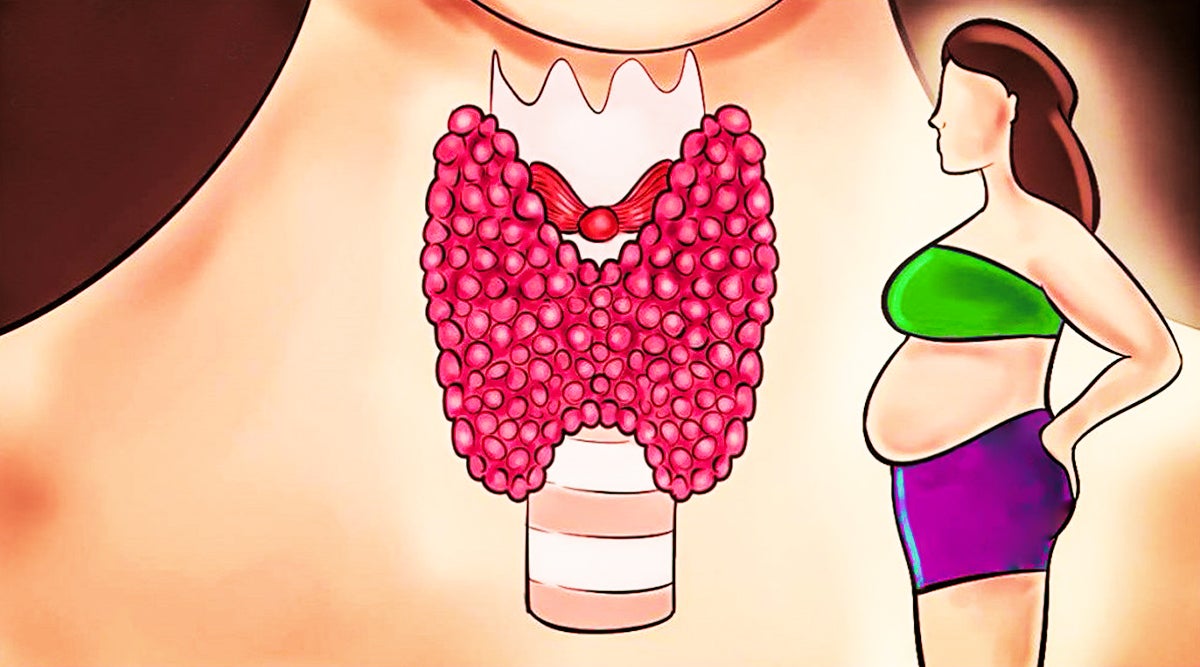The thyroid is a gland located at the level of the trachea. It is responsible for the production of various hormones. Here are 11 signs of a thyroid problem. Hormones are chemicals made by glands in the body. Each of them has a very specific role and ensures a balance which, when it is altered, can have consequences on our health. The thyroid is a gland in the neck that produces various hormones, all essential to our cells. 6 million people would be affected by its dysfunction. Focus on the 11 symptoms to watch out for.
Thyroid problems are very complex to identify. Indeed the symptoms caused by a dysfunction of this gland are very common in other diseases. So it's not uncommon to see thyroid disease go completely unnoticed for years. Here are the signs allowing you to identify it.
Symptoms of a thyroid problem
1. Depression
According to a scientific article in the Journal of Thyroid Research, there is a link between depression and a thyroid problem. This would be particularly the case for people suffering from hypothyroidism as explained by Pr. Philippe Touraine, head of endocrinology department in Paris. However, the expert recalls that depression is not exclusively linked to a thyroid problem.
2. Constipation
It is not uncommon to see digestion problems accompanying thyroid dysfunction. So according to a scientific study published in the Journal of Clinical Gastroenterology, there is a link between the two. The study explains that hypothyroidism, which is a disease characterized by an underactivity of the thyroid gland, can cause constipation.
3. Appetite disorder
The thyroid plays a key role in regulating appetite. A dysfunction of this one can thus lead to a loss or an exaggerated increase in hunger.
4. Lack of concentration, loss of memory
In an article relayed by Fox News, Dr. Robin Miller, a specialist in integrative medicine, explains that hyperthyroidism, which is an over-activity of the thyroid gland, can cause problems with concentration. Conversely, hypothyroidism can cause memory problems.
5. Loss of libido
Loss of libido may be associated with a thyroid problem, although research does not rank high on the list of disorders associated with decreased sexual appetite, according to research in the scientific journal Sexual Medicine Reviews. Dr Sylvain Mimoun, psychosomatician and gynecologist in Paris.
6. Cardiovascular problems
The thyroid can have a significant impact on the heart, as shown in a study published in the Methodist DeBakey Cardiovascular Journal. One of the functions of the thyroid is to regulate the heart rate. In case of hyperthyroidism, the person may therefore suffer from palpitations, and in the opposite case (hypothyroidism), see their blood pressure and heart rate decrease.
7. Skin problems
Hyperthyroidism can manifest with skin symptoms. So warm, moist and soft skin can be one of its characteristics. In contrast, cold, dry, pale skin can be a sign of hypothyroidism.
8. Disruption of the menstrual cycle in women
A study has shown that women with thyroid dysfunction are more likely to experience menstrual irregularities.
9. Hair loss
In an article in the International Journal of Trichology, scientists explain that there is a link between thyroid dysregulation and hair loss, especially when people are old enough.
10. A sudden weight gain
According to a study published by the Indian Journal of Endocrinology and Metabolism, hypothyroidism is associated with weight gain. Although the link between the two is indirect, this dysfunction could induce fatigue and anxiety which increase snacking and promote sedentary lifestyle.
11. The hoarse voice
In the case of thyroid problems, a study published in the Eurasian Journal of Medicine has shown that women who suffer from them can suffer from voice impairment. This symptom is also identified by the Canadian Cancer Society, especially when it comes to hypothyroidism.
If you notice several of these symptoms, it is imperative to consult your doctor to identify their cause and choose the appropriate treatment.


